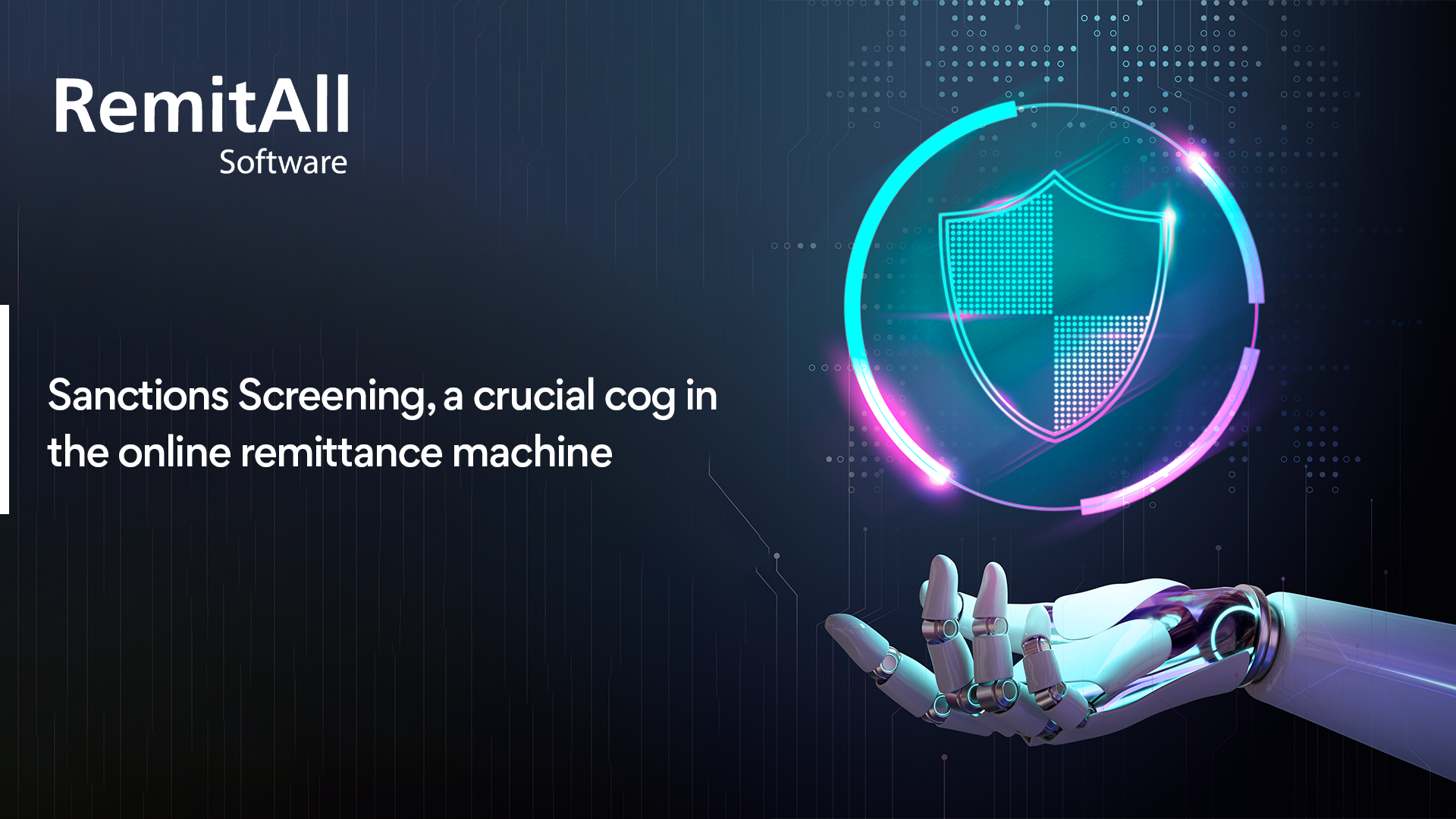APR 08 - 3:00 Minutes
Sanctions Screening in the world of online remittance

The measures taken by a particular country's financial institutions and multinational organisations to restrict trade and commerce in another country or to limit trading relations with an individual are called sanctions. These sanctions are meant to provoke a change in a failing state, anticipating that these sanctions will make a positive difference in the atmosphere.
When a country, a malicious entity or an individual affects the geopolitical or cultural aspects of another country, these sanctions are put in place. For example, Russia has been sanctioned by most of the world after their invasion of Ukraine. Prominent Russian oligarchs who have businesses around the globe also must bear the brunt of these sanctions.
Financial institutions around the world maintain a repository of the sanctions and their basic compliance protocols; they are responsible for checking if a business is meeting all the required benchmarks to avoid sanctions both domestically and internationally.
What are Sanctions Screening Programmes?
The financial regulatory bodies provide a set of broad and overarching guidelines for the Sanctions Programme as part of the AML/CTF protocols.
Anti-Money Laundering/Combating the Financing of Terrorism (AML/CFT) are financial protocols that financial institutions implement to prevent funds from reaching illegal criminal enterprises. To limit the criminal activities and funding to terror organisations, these guidelines are followed by financial institutions globally.
A Sanctions Screening Programme integrates these guidelines and follows a combination of policies and technologies to ensure no direct or indirect service is utilised by a sanctioned party anywhere.
Different financial institutions follow different forms of the sanctions screening programme; these programmes are usually formulated and implemented by the Financial Institution based on the regulations existing in the operating country. These regulations, combined with the industry-wide best practices, constitute the programme.
Why does a business need Sanctions Screening?
The powerful and relevant financial bodies around the world are responsible for limiting financial crimes and enabling risk-free financial operations. To facilitate this, they have put down regulatory markers for businesses to follow and comply with.
For an online remittance business, compliance is an essential requirement for seamless and hassle-free operations. A few more traditional sanction programmes have long-standing compliance criteria an online remittance business must follow to operate in that country.
A sanction list is a compilation of solitary sanctions applicable to individuals, countries, groups, or companies. These lists are usually compiled by governments collaborating with international financial bodies and multinational corporations.
What are a few factors that make sanctions screening complex?
- The tumultuous nature of global sanctions lists With the ever-changing geopolitical climate in the world, new additions and subtractions in the sanctions list are being made regularly. The higher the frequency of inclusion and exclusion to the list, the lesser is the stability in compliance protocols. Monitoring these sudden changes and adapting to them is a primary concern for online businesses.
- Sanctions are becoming more and more detailed Earlier, the sanctions issued by Governments and financial institutions were overarching, and they did not target specific aspects. Nowadays, sanctions have incredible details and specificity. They can be levied on solitary elements of a business.
- Multitude of sanctioning bodies have multiple sanctioning lists There are many financial institutions that come up with different compliance protocols. These protocols seldom align and are complex to keep track of. International organisations such as the UN and EU all have different compliance protocols.
Sanction Screening is a complex but mandatory aspect of setting up an online remittance business. There is a wide array of software solutions available in the market that provide these services for remittance businesses starting out.
RemitAll Software is loaded with a sanction screening solution that sources data from the European Union (EU) sanctions list, Her Majesty (HM) Treasury, Office of Foreign Assets Control (OFAC), Searching for subjects of sanctions (SECO). United Nations Security Council (UNSC) to ensure that an online remittance business is compliant with all the necessary regulations. To know more, please get in touch with us at contact-us.
Reading time 3:00 Minutes
Abhra Paul
An ex-developer with a passion for writing. Skilled in Copywriting, Feature Writing, Social Media Posts. Started working as a content writer after spending 2 years with a tech giant as a software developer.
Categories
Shifting Towards Digital Spell the End of Agents in Remittance. Yes or No?
May 20- 2 Minutes 10 Seconds

Five Mantras For Digital Payments And User Friendly For Your Customers
May 21- 2 Minutes 30 Seconds

Impact Of Remittance In Migration And Rural Development
May 27-2 Minutes 10 Seconds

 English
English Português
Português
